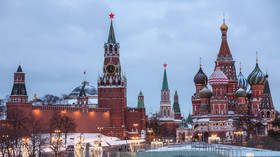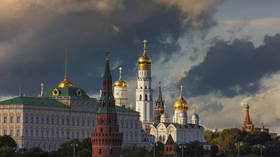Top economists issue grim prediction for Germany

Skyrocketing gas prices are drastically increasing energy costs in Germany, pushing the EU’s largest economy into recession, leading economic institutes reported on Thursday. They see the country’s gross domestic product (GDP) contracting by 0.4% next year.
The four institutes – Munich-based Ifo, the Kiel Institute for the World Economy (IfW Kiel), the Halle Institute for Economic Research (IWH) and the Leibniz Institute for Economic Research (RWI) – had earlier projected GDP to rise by 3.1% in 2023.
According to their joint economic forecast, economic output will grow 1.4% this year, down from 2.7% predicted in spring.
“The crisis on the gas markets is having a severe impact on the German economy,” the report said, adding that “Soaring gas prices are drastically increasing energy costs, leading to a massive reduction of the purchasing power.”
Under a risk scenario involving a very cold winter, gas shortages and a lack of savings in energy consumption, the institutes expect GDP to contract by 7.9% in 2023 and by 4.2% in 2024.
Economists have been warning lately that Germany will be among the countries worst affected by the global economic slowdown next year. According to statistics office Destatis, annual inflation in Germany accelerated to 8.8% in August, the highest level in nearly 50 years. The country’s central bank, the Bundesbank, warned last month that a recession in Germany was “increasingly likely,” but did not provide any numbers.
For more stories on economy & finance visit RT's business section













